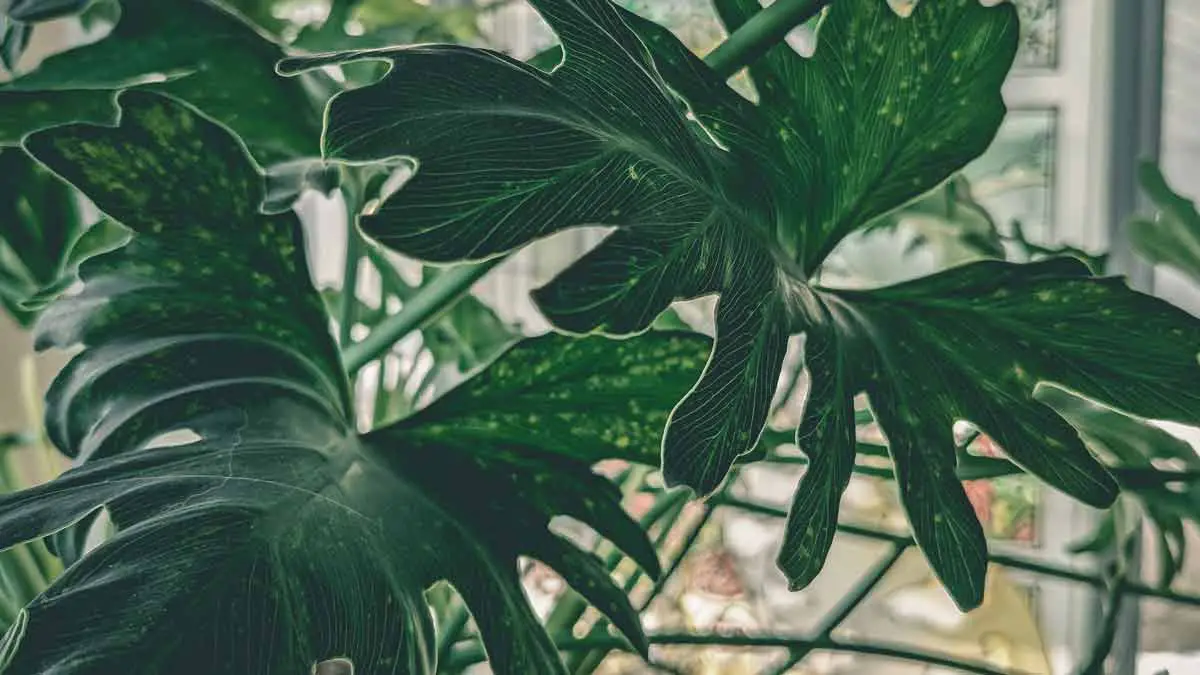Monstera plants should be fertilized during their growing season (spring and summer) with a balanced houseplant fertilizer once a month. Slow-release granules or compost can also be used. Overfertilization should be avoided.
You’ve probably heard of the Monstera plant, the Swiss Cheese plant, if you’re a plant lover. With its iconic split leaves and easy-to-care-for nature, it’s no wonder that this plant has become a popular choice for indoor greenery.
However, like all plants, Monstera plants need proper care to thrive. One essential aspect of caring for your Monstera plant is fertilizing it.
Fertilizing your monstera plant is crucial to ensure it receives all the nutrients for healthy growth. Proper fertilization can also help your plant produce more leaves and even flowers.
However, with so many different fertilizers and methods available, it can take time to know where to start.
This article will explore the best ways to fertilize your monstera plant to help it thrive.
Understanding Monstera Fertilization
Monstera plants are known for their large, lush leaves and unique appearance.
To keep your Monstera plant healthy and thriving, it’s essential to fertilize it regularly. Fertilizer provides the necessary nutrients that the plant needs to grow, flower, and fruit.
When fertilizing Monstera plants, it’s crucial to understand the plant’s needs.
Monstera plants are heavy feeders, requiring a balanced fertilizer that contains equal amounts of nitrogen, phosphorus, and potassium.
Look for a product with an NPK ratio of 1-1-1, 2-4-2, 3-2-3, or similar ratios.
Both liquid and solid fertilizers can be used to fertilize Monstera plants.
Liquid fertilizers are easy to apply and quickly absorbed by the plant. Solid fertilizers, on the other hand, release nutrients slowly over time, providing a longer-lasting effect.
Choose the type of fertilizer that works best for you and your Monstera plant.
It’s essential not to overfertilize your Monstera plant, which can damage the roots and cause the plant to wilt.
Follow the instructions on the fertilizer packaging carefully, and never apply more than the recommended amount.
Fertilize your Monstera plant during the growing season, which typically runs from spring to fall, and reduce or stop fertilizing during the winter months when the plant is dormant.
When to Fertilize Monstera Plants
Knowing when to fertilize your Monstera is crucial to its growth and overall health.
Monsteras are tropical plants that thrive in warm and humid environments. They grow actively during the warm months of the year, from early spring to early fall.
Your Monstera will need regular fertilization to support its growth and development during this time.
The best time to fertilize your Monstera is during its growing season, which typically runs from March to September.
During this period, you should fertilize your plant every 2-4 weeks, depending on the type of fertilizer you use and the specific needs of your plant.
Applying fertilizer too frequently or in excessive amounts can cause damage to the roots and leaves of your Monstera, so be sure to follow the instructions on the label of your fertilizer.
It’s important to note that your Monstera will enter a dormant period as the weather cools down and the days get shorter in the fall and winter. Its growth will slow down during this time, requiring less water and nutrients.
Therefore, you should stop fertilizing your Monstera during the winter months, from October to February. This will allow your plant to rest and prepare for the next growing season.
The key to fertilizing your Monstera is to pay attention to its growth patterns and adjust your fertilization schedule accordingly.
Providing your plant with the proper nutrients at the right time ensures it grows strong, healthy, and vibrant all year round.
Choosing the Right Fertilizer
When it comes to fertilizing your Monstera, choosing the right fertilizer is crucial for the health and growth of your plant.
There are a few factors to consider when selecting a fertilizer:
- N-P-K Ratio: The N-P-K ratio, or the ratio of nitrogen, phosphorus, and potassium in the fertilizer, is an important factor to consider when choosing a fertilizer for your Monstera. Generally, a fertilizer with a balanced N-P-K ratio, such as 20-20-20 or 10-10-10, is a good choice for Monstera plants.
- Type of Fertilizer: There are many different types of fertilizers available, including liquid, granular, and slow-release fertilizers. Liquid fertilizers are a popular choice for Monstera plants, as they are easy to apply and quickly absorbed by the plant.
- Organic vs. Synthetic: You can choose between organic or synthetic fertilizers. An organic fertilizer is made from natural materials and is often slower to release nutrients. In contrast, a synthetic fertilizer is made from chemical compounds and releases nutrients quickly.
When selecting a fertilizer, it is important to read the label carefully and follow the manufacturer’s instructions for application.
Overfertilizing your Monstera can lead to fertilizer burn, damaging the roots and leaves of your plant.
Some popular fertilizers for Monstera plants include Dyna-Gro Grow, Jack’s Classic All Purpose Fertilizer, and Miracle-Gro Indoor Plant Food.
However, it is important to note that every Monstera plant is different.
What works for one may not work for another. It is crucial to monitor your plant’s growth and adjust your fertilization schedule and type of fertilizer accordingly.
How to Fertilize a Monstera Plant
Fertilizing your Monstera is essential to its care routine, but knowing how and when to do it cannot be very clear.
Here are some tips to help you fertilize your Monstera effectively:
Choose the Right Fertilizer
When choosing a fertilizer for your Monstera, look for one with a balanced NPK ratio. This means the fertilizer contains equal amounts of nitrogen, phosphorus, and potassium.
A balanced fertilizer will give your Monstera the nutrients it needs to grow healthy and strong. Depending on your preference, you can use a liquid or granular fertilizer.
Apply Fertilizer Once a Month
Feed your Monstera plant once a month during the growing season, which is from April through September.
Applying fertilizer during this time will give your Monstera the boost it needs to grow and thrive.
Avoid fertilizing your Monstera during the winter months when it is dormant.
Dilute the Fertilizer
When using a liquid fertilizer, dilute it to half-strength before applying it to your Monstera. This will prevent overfertilization, which can damage the plant’s roots.
If using a granular fertilizer, apply it to the potting soil around the base of the plant and water it well.
Water Your Monstera Before Fertilizing
Before applying fertilizer, make sure to water your Monstera. Fertilizers applied to dry soil can burn or damage the plant’s roots.
Watering your Monstera before fertilizing will ensure the soil is moist and ready to receive nutrients.
Don’t OverFertilize
Overfertilizing your Monstera can be just as harmful as under-fertilizing it.
Too much fertilizer can cause the plant to grow too quickly, weakening its structure and making it more susceptible to pests and diseases.
Stick to the recommended fertilization schedule and dilution rates to keep your Monstera healthy and happy.
Following these tips, you can fertilize your Monstera effectively and keep it looking its best.
Remember to choose the right fertilizer, apply it once a month, dilute it properly, water your Monstera before fertilizing, and avoid over-fertilizing.
With the right care, your Monstera will thrive and bring a touch of the tropics to your home.
Common Mistakes to Avoid
When fertilizing your Monstera Deliciosa plant, you should avoid a few common mistakes to ensure your plant’s health and longevity.
- Overfertilizing: One of the most common mistakes people make is over-fertilizing their Monstera. Too much fertilizer can lead to a buildup of salts in the soil, which can damage the roots and cause the plant to wilt or die. It’s essential to follow the instructions on the fertilizer packaging and not exceed the recommended dosage.
- Underfertilizing: On the other hand, under-fertilizing can also harm your Monstera’s health. If your plant isn’t getting enough nutrients, it may grow slowly, produce smaller leaves, or become more susceptible to pests and diseases. Make sure to fertilize your Monstera regularly, especially during the growing season.
- Using the wrong type of fertilizer: Monstera Deliciosa plants prefer a balanced, all-purpose fertilizer that contains equal amounts of nitrogen, phosphorus, and potassium. Using a fertilizer that is too high in one of these nutrients can cause imbalance and problems for your plant. Also, avoid using fertilizers that contain herbicides or pesticides, as these can harm your Monstera.
- Fertilizing at the wrong time: It’s important to fertilize your Monstera at the right time to ensure optimal growth and health. You should fertilize your plant every two weeks during the growing season (spring and summer). During the dormant season (fall and winter), you can reduce the frequency to once a month or stop fertilizing altogether.
- Fertilizing too soon after repotting: If you’ve recently repotted your Monstera, waiting a few weeks before fertilizing is essential. Repotting can be stressful for plants, and fertilizing too soon can cause further stress and damage. Wait until your plant has had a chance to acclimate to its new pot before fertilizing.
Avoiding these common mistakes can help your Monstera Deliciosa thrive and grow into a beautiful, healthy plant.
Final Thoughts
Fertilizing your Monstera plant is essential to its care routine. It helps to promote healthy growth and keep your plant looking its best. However, it’s important to fertilize your Monstera correctly and at the right time.
As we’ve seen, several types of fertilizers are available for Monstera plants, including organic and synthetic options.
It’s essential to choose a fertilizer that suits your plant’s needs and to follow the instructions carefully to avoid overfertilizing.
Remember to fertilize your Monstera at least once a month during the growing season, typically from spring to fall.
During the winter months, you can reduce the frequency of fertilization to once every two months or so.
Additionally, it’s important to use a balanced houseplant fertilizer diluted to half strength. This will give your Monstera the nutrients without overwhelming it with too much fertilizer.
By following these tips and guidelines, you can ensure that your Monstera plant thrives and continues to bring beauty and joy to your home for years.







